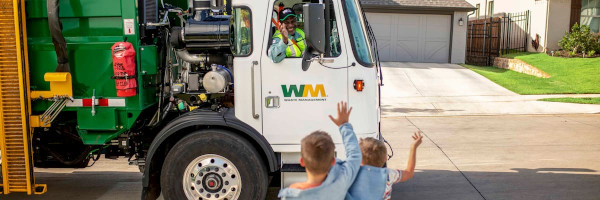Solid Waste Management IoT Solution
| Solid Waste Management IoT Solution | |
|---|---|

| |
 Solid Waste Management IoT Solution | |
| Team Organizations | Persistent Systems USA Office of Public Works Pune Municipal Corporation |
| Team Leaders | Brianna Sionne |
| Participating Municipalities | South Bend IN Pune Mahashatra India |
| Status | Launched |
| Document | None |
Description
Garbage and refuse collection management is a critical function for any municipal government and private township. Inefficient or irregular collection leads to unsafe disposal by the public, which in turn creates conditions hostile to commerce and public health. Accelerite has developed an AWS solution on its Concert IoT platform that offers ready to use “Smart City” solid waste management IOT services. The possibilities for creating public/ private sector revenue generating ecosystems are vast (e.g. selling recyclables and compostable waste to the highest bidder, revenue sharing with citizens to reward participation). Concert IoT’s Service Exposure and Monetization modules make it possible to expose services to partners for further innovation such that they can be consumed in a secure access and payments/settlements charging policy enforced manner.
Challenges
- Inefficient, time-consuming Waste Collection
- Waste bin overflow
- Minimizing fraud, safety, and coverage risk
Solutions
- Optimal route planning based on historic refuse volume by type (landfill/recyclable/compostable) to reduce collection vehicle “truck rolls” and fuel consumption. Forecasting required resources based on anticipated refuse volumes
- Automated, wireless realtime reporting of refuse levels in bin to reduce occurrence of “overflow”. Smart Dispatch of collection vehicles per proximity, required/available cargo space
- Collection and processing of IoT data from bins and trucks to track cost of service, detect fraud by partners, ensure servicing of all routes by drivers in a safe manner and assess accurate payroll timesheet submissions by drivers and sweepers
Major Requirements
- Develop and assemble project team
- Create scope and requirements, project plan
- Compare community performance vs. benchmarks
- Create application development team, develop application
- Identify area for pilot program development; design and roll out pilot for WASTE BIN MONITORING & COLLECTION VEHICLE DISPATCH; WASTE COLLECTION PLANNING & KPI ANALYTICS; CONCERT IOT POWERED WASTE COLLECTION CLOUD
- Gain stakeholder support and buy-in from the community
- Run pilot for two months
Performance Targets
| Key Performance Indicators (KPIs) | Measurement Methods |
|---|---|
|
|
Standards, Replicability, Scalability, and Sustainability
- Bin Mounted IoT GW: LoRa MQTT gateway with ultrasonic fill level sensor
- Bin RFID Adhesive tag with unique ID to be scanned during collection
- Mobile IoT Gateway with GPS module (accelerometer and OBD/CAN Bus port scanners required for maintenance and safe driving reports)
- RFID Tag Reader (Establishes standardized procedures for rapid response ambulance services).
- Standardized processes are not unique to city or region and can be replicated and scaled up in multiple cities/communities.
- The system will have its own business model to create sustainable revenue stream.
Cybersecurity and Privacy
TBD
Impacts
- Improvement of community desirability
- Enablement of new business models/business base
- Reduction of solid waste
- Improving quality of lives/health/safety
- Community acceptance to be replicated across the United States
Demonstration/Deployment
Real-time working application tied into city dispatch systems at city-wide scale, supporting over 50% of the city. Demonstration will include running, simulated before/after collection profiles.